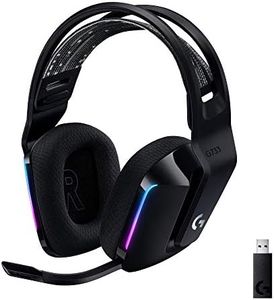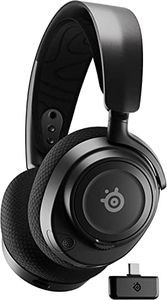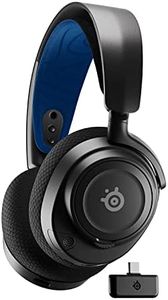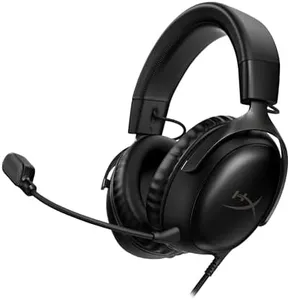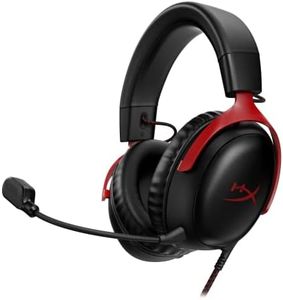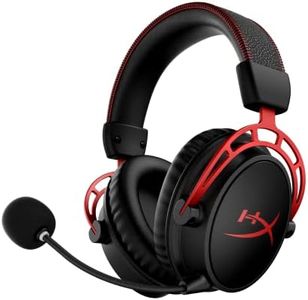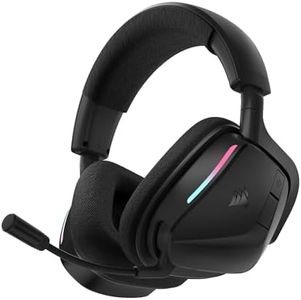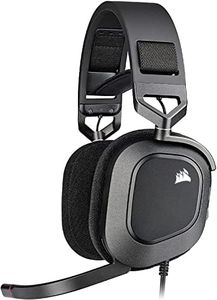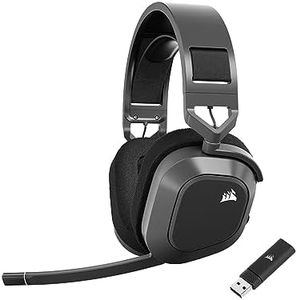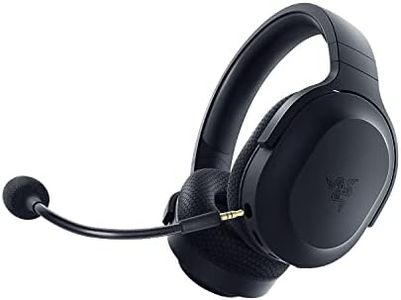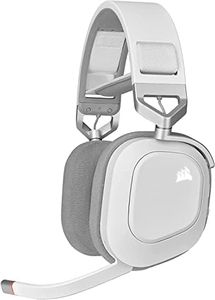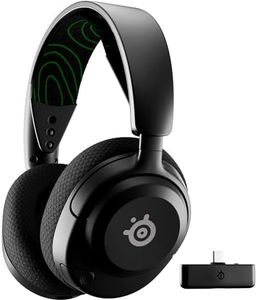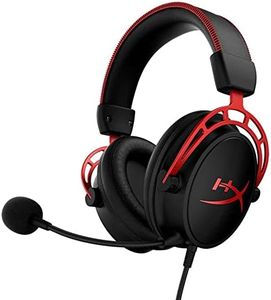We Use CookiesWe use cookies to enhance the security, performance,
functionality and for analytical and promotional activities. By continuing to browse this site you
are agreeing to our privacy policy
10 Best Budget Gaming Headsets
From leading brands and best sellers available on the web.By clicking on a link to a third party's website, log data is shared with that third party.
Buying Guide for the Best Budget Gaming Headsets
Choosing a gaming headset is all about finding the right balance between comfort, sound quality, microphone clarity, and compatibility with your devices. The perfect headset will make your gaming sessions more immersive and enjoyable, while also keeping your communications clear. It's important to understand the main features of a gaming headset so you can decide which factors matter most for how you play and what you expect from your setup.Sound QualitySound quality refers to how well the headset reproduces audio, including game sounds, music, and chat. This spec is important because good sound can enhance your awareness in games and your enjoyment overall. Headsets usually offer stereo sound or surround sound. Stereo sound comes from two speakers (right and left), which is enough for casual gaming or music. Virtual surround sound creates a sense of direction, making it easier to hear where things are coming from—great for competitive games. Choose stereo if you mostly play casual games or listen to music, but consider surround sound if you play a lot of shooters or games where hearing directions is important.
Comfort and FitComfort is about how the headset feels on your head during long gaming sessions. It’s important because even a great-sounding headset will be unpleasant if it hurts after an hour. Look at materials like memory foam padding, adjustable headbands, and lightweight designs. Over-ear headsets generally provide more comfort and noise isolation than on-ear models. If you play for long periods, or wear glasses, prioritize softness, cushion quality, and how adjustable the headset is.
Microphone QualityThe microphone lets you communicate with teammates, and its quality determines how clear your voice sounds. This matters a lot for team games or chatting with friends. Microphones can be fixed or retractable, and may have noise-cancelling features to filter out background noise. If communication is a crucial part of your gaming, look for a headset with a flexible boom mic and user reviews praising voice clarity. If you don’t talk much, a basic built-in mic may be enough.
Connectivity (Wired vs. Wireless)Connectivity refers to how the headset connects to your device, either through cables (wired) or wirelessly (Bluetooth or USB dongle). Wired connections tend to offer more reliability, zero-latency audio, and no need for charging, which can be important for competitive gaming or long sessions. Wireless offers freedom to move and fewer cables but requires regular charging and may introduce slight delays. If you want freedom to move and don’t mind charging, consider wireless. If you want hassle-free, always-ready audio, wired is a safe bet.
CompatibilityCompatibility tells you which devices the headset works with, such as PC, consoles, or mobile devices. This is important to check so you don’t end up with a headset that won’t connect to your gaming system. Many headsets use a 3.5mm jack, which works with most devices, while others require USB or have separate versions for different consoles. Decide where you do most of your gaming, and make sure the headset you pick lists that device type. If you want to use it across multiple platforms, search for universal or multi-platform compatibility.
Durability and Build QualityDurability describes how well the headset can withstand daily use, drops, twisting, or tugging. It’s important because you want your headset to last, especially if you travel or store it away often. Materials like metal-reinforced headbands and sturdy cables are signs of better build quality. If you tend to be rough on your gear or plan to use the headset a lot, keep an eye out for strong construction and positive durability reviews.
